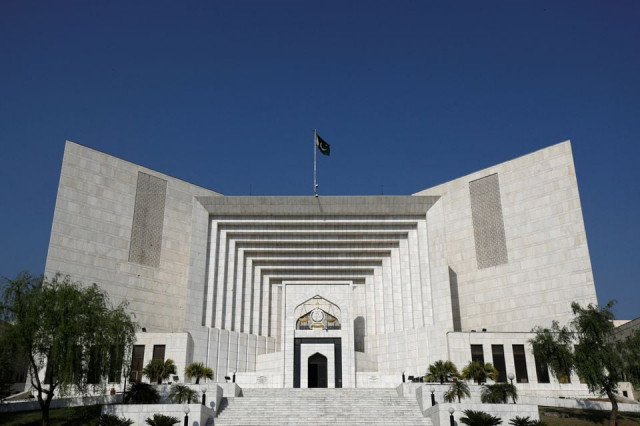Order sheet in SC suo motu case still awaited
Former SHCBA president says he does not know whether PTI has won or PDM

Though the Supreme Court's order regarding the announcement of date to hold elections in the two provinces has been partially implemented to the extent of Punjab, the certified copies of the complete order sheet are still awaited.
The Attorney General for Pakistan (AGP) Office also confirmed to The Express Tribune that the complete order sheet in the suo motu case had yet to be received by the SC office.
The counsel for parties confirmed that they had yet to receive the certified copies of Feb 23, 24 and 27 orders, which are crucial for the judicial history wherein judges questioned each other openly.
In the Feb 23 order, four judges namely Justice Syed Mansoor Ali Shah, Justice Yahya Afridi, Jamal Khan Mandokhail and Justice Athar Minallah had written their separate additional notes.
Interestingly, the Feb 24 order was signed by nine members of the larger bench after a week.
Subsequently, all nine members of the bench on Feb 27 deliberated on the matter in the ante-room and the matter was referred to Chief Justice of Pakistan Umar Ata Bandial for reconstitution of the bench.
There was no detail about the discussion/deliberations made in the ante- room.
Two judges namely Justice Ijazul Ahsan and Justice Sayyed Mazahar Ali Akbar Naqvi did not give reasons about why they were recusing from the bench.
One lawyer claimed that there was no final order of the court. He expected that several things would come to the surface in the detailed judgement.
Several lawyers who were not associated with any political party believed that the March 1 decision was being given by four to three judges and it was not three to two judges.
They also wondered whether the SC detailed judgement would give the reason to empower the governor and the president to exercise their discretion regarding the announcement of the poll date in the general election after the passage of the 18th Constitutional Amendment.
They also asked how the SC while exercising suo motu jurisdiction could overturn the Lahore High Court judgement. Instead of taking a final decision in the suo motu matter, the SC unanimously should have allowed high courts to take the decision in this matter even though no one is opposing on record that elections should be delayed.
However, a legal debate also started that if elections were held in two provinces – Punjab and Khyber-Pakhtunkhwa, what would be the fate of the provincial governments in general elections wherein under the Constitution, caretaker governments would be formed in all provinces.
Former Sindh High Court Bar Association (SHCBA) president Salahuddin Ahmed said he did not know whether it was a three-two or a three-four order. "I don’t know whether the PTI has won or the PDM (Pakistan Democratic Movement). What I do know, however, is that the Supreme Court has lost. Unfortunately, [this is] something their lordships should think deeply about,” he added.
Salahuddin observed that the issue could have easily been resolved if a full court was formed to hear the matter.
The PDM-led government twice requested Justice Bandial to form a full court but its pleas were turned down on both the occasions.
Senior lawyers wondered whether the purpose of the suo motu proceedings was to uphold the Constitution by ensuring the holding of elections or to shift the supremacy from one section of the superior judiciary to the other.
It was witnessed that the suo motu proceedings in the matter had exposed a severe rift within the SC judges.



















COMMENTS
Comments are moderated and generally will be posted if they are on-topic and not abusive.
For more information, please see our Comments FAQ